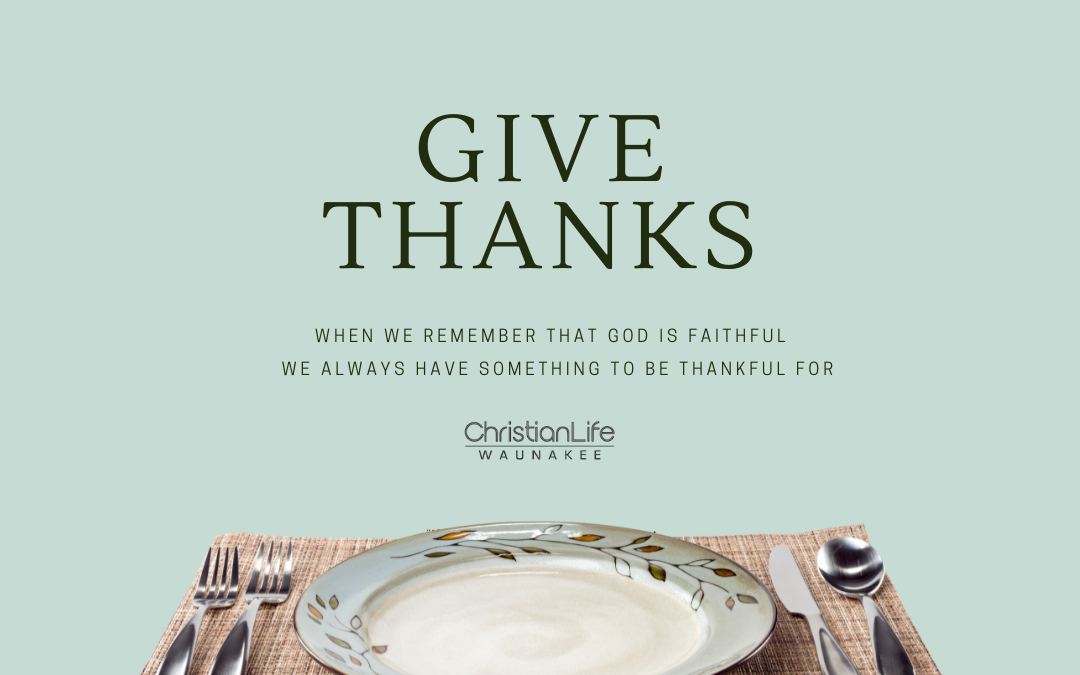Today is the day before Thanksgiving. Do you celebrate by gathering with family? Making a tableful of delicious food? Watching a sports game? There are many fun traditions different families take part in on Thanksgiving. As well as being a fun day to hang out with loved ones and enjoy each other’s company, holiday traditions can also be an excellent reminder of what we value.
Taking regular time to pause from normal life and observe special feasts to remember important events and truths is something God taught the Israelites to do. One of those feasts, commanded in Leviticus 23:39-40, is called Sukkot, the Feast of Tabernacles or Feast of Booths. It’s a festive, joyous holiday, filled with special meals, prayer services, Temple ceremonies, lights, music, and praise. During this festival, the Jewish people construct temporary outdoor structures called sukkot (plural of sukkah, meaning booth or tabernacle) with branches or thatch for roofing. They live in them for seven days to commemorate how God led the Israelites out of the wilderness, where they camped in tents and booths. The booths are often decorated with symbols such as the lulav (three types of plant mentioned in Lev. 23:40 woven together) and etrog (a citrus fruit), which are also waved during services. The week-long celebration is also called the Feast of Ingathering because it takes place after the autumn harvest.
Although also a harvest festival, Thanksgiving is obviously very different from Sukkot and wasn’t commanded by God. But even if, as Gentiles, we don’t celebrate Jewish holidays like Sukkot, we can still learn something from them about how to make our own festivities meaningful.
First, Thanksgiving offers a chance to rest and remember. During Sukkot, people are encouraged to rest from typical work in order to enjoy the celebration, give thanks for the harvest, and remember God’s faithfulness in the past. The Feast passes that legacy down to future generations in a way that lets them enact and engage in the rejoicing and wonder and gratefulness the Israelites felt when they were finally led out of the wilderness into the promised land. Rather than just hearing about it in some dry history lesson, they get to be surrounded by visible, tangible, audible, and edible reminders. Similarly, as Christians living in the U.S., we can use Thanksgiving not just as a chance to remember the history of our country but as a tangible reminder of how important gratitude is to our worship and spiritual health.
Second, Thanksgiving is a chance to develop the habit of gratitude. Like Sukkot, Thanksgiving is an opportunity to praise God and reflect on how He has blessed us and been faithful to us. Thankfulness a crucial part of our worship to God, and developing it helps us see the world differently. When we spend time practicing gratefulness, we start to see everything in the world—from air to food to shelter to family/friends—as a gift. That kind of attitude isn’t just for one day a year, as it can help us be more content and joyful throughout our life, even during hard times. However, gratitude isn’t born within us; it has to be taught and practiced. Opportunities like Thanksgiving to gather together in gratitude for the harvest (or whatever good things are in our lives) help us train this habit. So when we experience sorrow, hardship, and disappointment, we can remember that God is faithful and that we always have something to be thankful for.
It can be easy to see holidays as an obligation or as an over-commercialized affair with little meaning. We can get so caught up in the preparations and stress of the moment that we forget why we’re celebrating. Holidays and festivities are there to remind us of something important, even if that’s just our need to relax and have fun. So, whether it’s tomorrow or another time, I hope you get a chance to rest, praise God for His faithfulness, and share stories, experiences, and blessings with those near you. Have a wonderful Thanksgiving!
—————————————————

